What is gastroparesis?
Gastroparesis is a condition that affects the stomach’s ability to move food through the digestive system. Also known as delayed gastric emptying of the stomach, gastroparesis prevents stomach nerves and muscles from working properly, slowing the stomach’s ability to break down food and send it into the small intestine. As a result, food stays in your stomach longer than normal.
Doctors generally diagnose this relatively uncommon condition if your stomach has had trouble emptying food for at least three months, and you don’t have a blockage in your digestive system.
Gastroparesis can’t often be cured, but dietary changes, nonsurgical treatments and newer endoscopic procedures can help you manage symptoms.
Watch our webinar on common reasons for bloating, including gastroparesis
Types of gastroparesis
To classify what type of gastroparesis you have, doctors will look to its cause. Types of gastroparesis include:
- Idiopathic gastroparesis: Most cases of gastroparesis, between 25% and 50%, are considered idiopathic, meaning doctors are unable to identify a specific cause.
- Diabetic gastroparesis: With poorly managed diabetes, high blood sugar can damage the vagal nerves, which help control digestion. This is the most common single cause of gastroparesis.
- Postinfectious gastroparesis: You can develop gastroparesis after infections with certain viruses, such as the Norwalk virus, rotavirus or Epstein-Barr virus.
- Postsurgical gastroparesis: Gastroparesis may occur if surgery to your digestive system damages the vagal nerves, which tell the stomach muscles to contract.
Gastroparesis symptoms
When your stomach muscles work correctly, they contract to process food and move it along to its next stop in the digestive system, your small intestine. With gastroparesis, food lingers in your stomach. As a result, you may experience symptoms ranging from feeling full too soon to nausea, acid reflux and more.
Common symptoms of gastroparesis include:
- Abdominal (belly) pain
- Acid reflux
- A distended (stretched) abdomen
- Bloating
- Dyspepsia (indigestion)
- Excessive belching
- Feeling full almost as soon as you start eating
- Hypoglycemia (low blood sugar)
- Nausea
- Reduced appetite
- Unexplained weight loss
- Vomiting
When to see a doctor
See your primary care doctor if you experience digestive symptoms, especially if they last for weeks or months. They will perform an initial workup and may refer you to a gastroenterologist for a more detailed evaluation. If your gastroenterologist diagnoses gastroparesis, they will recommend the most appropriate treatment for you based on the cause and other factors.
Gastroparesis causes
Most often, gastroparesis occurs due to damage to the nerves that control the stomach muscles. These nerves convey messages from the brain that tell the muscles to contract. When injured, this system of communication doesn’t function properly. So, the muscles don’t work as well as they should.
In some cases, damage to the muscles rather than the nerves interferes with the stomach’s ability to empty.
Several factors can cause nerve or muscle damage and lead to gastroparesis. These factors include diabetes, digestive surgery and certain infectious diseases.
Gastroparesis risk factors
Diabetes, certain surgeries and some infections can cause gastroparesis or make it more likely to develop. Other factors, such as specific medications, treatments and medical conditions, can also raise your risk. Understanding these risk factors can help you and your doctor identify possible contributors and guide your treatment plan.
Risk factors for gastroparesis include:
- Autoimmune diseases: Your body’s immune system may mistakenly attack your cells, which can damage nerves in your stomach in the process.
- Certain medications: Some medicines, such as opioids and certain antidepressants, can slow down stomach emptying and contribute to gastroparesis.
- Neurological diseases: Conditions that cause abnormal nervous system functioning, such as multiple sclerosis, can affect your stomach nerves.
Complications
Without treatment, gastroparesis can have an impact on your quality of life. Symptoms such as nausea and vomiting can lead to more serious problems, like dehydration and malnutrition. In addition, if you have diabetes, gastroparesis can make managing your blood sugar more difficult.
Complications that may develop from gastroparesis include:
- Acid reflux: Gastroparesis-related acid reflux can become chronic, and chronic acid reflux can lead to esophagitis (inflammation) and gastroesophageal reflux disease.
- Bezoar: Food in the stomach can solidify into a mass called a bezoar and block the outlet to the small intestine.
- Blood sugar problems: Delayed stomach emptying can cause steep drops and spikes in blood sugar.
- Dehydration: Persistent vomiting, a common symptom of gastroparesis, can lead to dehydration through loss of fluid.
- Malnutrition: When your stomach muscles don’t move food through the digestive system normally, you may not absorb nutrients well.
How is gastroparesis diagnosed?
Your doctor will start by asking about your medical history to learn of any risk factors that could cause or contribute to gastroparesis. They will also conduct a physical exam to look for signs of the disorder.
Next, your doctor will likely order imaging tests or a procedure to rule out other causes of your symptoms, such as a blockage in your stomach. If you don’t have a blockage, your doctor will perform tests to determine how well food moves through your stomach.
-
Medical history and exam
Your doctor will ask about your medical history. They will want to know about previous surgeries and treatments and any chronic conditions, such as diabetes, you may be managing. Your doctor will also want to hear about your symptoms. Be sure to tell them when the symptoms started, what they feel like and how they affect your quality of life.
Your doctor will conduct a physical exam to better understand your overall health and look for signs of gastroparesis, such as stomach tenderness or stretching.
-
Imaging and tests
Imaging tests help your doctor rule out other conditions, identify possible causes and determine whether you have a blockage that could be causing symptoms.
- Blood tests: Blood tests can detect signs of an autoimmune disease or previous infection.
- Computerized tomography (CT) scan: A CT uses X-rays to create 3D images of organs, soft tissues and blood vessels. A CT can show whether you have a stomach obstruction.
- Magnetic resonance imaging (MRI) scan: An MRI uses high-powered magnets and radio waves to take pictures of the stomach and other organs. The scans can help your doctor look for blockages and other causes of pain, nausea and vomiting.
- Ultrasound: Ultrasounds use sound waves to produce real-time images of the organs. Ultrasound can show your doctor problems with the stomach.
- Upper endoscopy (EGD procedure): This test allows your doctor to look for problems inside your esophagus, stomach and small intestine, such as blockages or ulcers. The test involves a special tool inserted down your throat.
-
Gastric emptying tests
If imaging tests didn’t show a blockage or other problems, your doctor may use gastric emptying tests to see how well your stomach empties. These studies show the rate at which food leaves your stomach.
- Breath tests: You eat a meal containing a molecule that produces a gas when it reaches your intestines. The gas can be detected in your breath, which helps your doctor understand how long the molecule took to reach your intestines.
- Scintigraphy: This test involves eating a meal containing a small amount of radioactive material. A nuclear imaging scanner then tracks the material as it passes through your digestive system.
Gastroparesis treatment
While gastroparesis usually can’t be cured, treatment focuses on managing symptoms and addressing underlying causes to help improve quality of life.
Your treatment plan will depend on several factors, including the type of gastroparesis you have and the severity of your symptoms. Treatment options include dietary and lifestyle changes, blood sugar control, medications and if necessary, surgery.
You may need to try several therapies before finding one that effectively controls your symptoms, but your doctor will work with you to identify the best approach for managing your condition.
Dietary and lifestyle changes
Modifying your diet can make digestion easier while ensuring you get the necessary nutrients and calories. A dietitian can help you make nutrition changes, which may include:
- Avoiding alcohol and carbonated beverages
- Avoiding lying down for two hours after eating
- Chewing your food thoroughly
- Choosing soft foods
- Eating low-fat and low-fiber foods
- Eating small, nutrient-rich meals frequently instead of three large meals per day
- Drinking plenty of water
- Taking a daily multivitamin
- Taking a walk or engaging in another form of light exercise after meals
Blood sugar control
If you have diabetic gastroparesis, your doctor will work with you to manage blood sugar levels and prevent hyperglycemia (elevated blood sugar levels), which can affect gastroparesis. Work with your primary care doctor or endocrinologist to control your blood sugar using medication and regular checks of your levels.
Gastroparesis medication
Medications are important tools for managing gastroparesis. They can help boost the function of your stomach muscles or treat symptoms, such as pain and vomiting. Your doctor may prescribe:
- Metoclopramide: Taken as a tablet, liquid or nasal spray, metoclopramide prompts your stomach muscles to contract and move food into the small intestine. This medication can also relieve nausea.
- Motilin receptor agonists: This group of medications can help the stomach muscles work more effectively in some people.
- Serotonin agonists: These medications encourage muscle contractions in your intestines, which may help food leave your stomach.
Surgery
You may be able to manage your symptoms with medications or dietary and lifestyle modifications. If these treatments aren’t effective, your doctor may recommend surgery. Surgical treatments for gastroparesis include:
- Gastric bypass: This surgery is typically used to aid weight loss, but it can help with gastroparesis. Your surgeon removes or seals part of the stomach and creates a new passage to the small intestine so food bypasses the malfunctioning part of the stomach.
- Gastric electrical stimulation: Your surgeon will place a tiny, battery-powered device in your abdomen and run wires from the device to your stomach muscles. The device sends light electrical pulses to the muscles to help them contract.
- Jejunostomy tube feeding: Your surgeon will create an abdominal opening (jejunostomy) and insert a feeding tube into the jejunum (part of your small intestine) so food bypasses your stomach.
- Pyloroplasty: This procedure expands the pylorus, the valve at the base of your stomach that allows food to exit. Your surgeon can perform it through an incision in your abdomen or without incisions using endoscopy.
- Venting gastrostomy: This procedure can help with symptoms, such as nausea and vomiting. It involves creating an opening called a gastrostomy, then placing a tube in your stomach, allowing its contents to flow into the tube and out the opening.
Find specialized care for gastroparesis near you
At Baylor Scott & White, we offer several locations for the treatment of diseases of the digestive system, including gastroparesis, at gastroenterology centers across North and Central Texas. Our experienced team is ready to provide personalized care to help improve your quality of life. Whether you're seeking diagnostic testing, treatment options or ongoing support, we are here to help you.
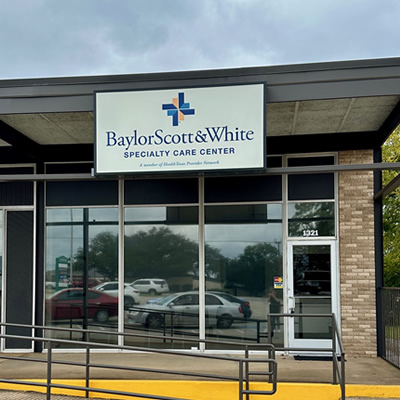
Baylor Scott & White North Texas Colon and Rectal Associates - Tyler
1321 S Beckham Ave , Tyler, TX, 75701

Baylor Scott & White Surgical Hospital - Sherman
3601 N Calais St , Sherman, TX, 75090
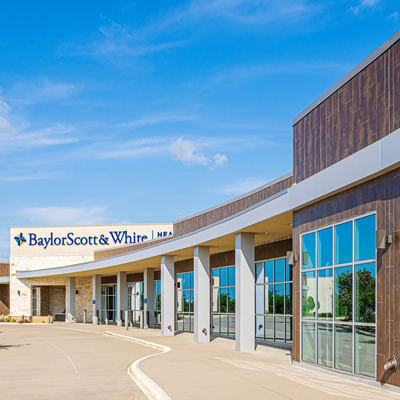
Baylor Scott & White Gastroenterology - Greenville
4400 Interstate 30 W Ste 300, Greenville, TX, 75402

Baylor Scott & White Digestive Diseases Group - Anna
450 N Standridge Blvd Ste 104, Anna, TX, 75409

Baylor Scott & White Digestive Diseases Group - McKinney
5236 W University Dr Ste 3800, McKinney, TX, 75071

Baylor Scott & White Digestive Diseases Group - McKinney
5236 W University Dr Ste 3800, McKinney, TX, 75071
- Monday: 8:30 am - 4:30 pm
- Tuesday: 8:30 am - 4:30 pm
- Wednesday: 8:30 am - 4:30 pm
- Thursday: 8:30 am - 4:30 pm
- Friday: 8:30 am - 4:30 pm

Baylor Scott & White Medical Center - McKinney
5252 W University Dr Highway 380 at Lake Forest Drive, McKinney, TX, 75071
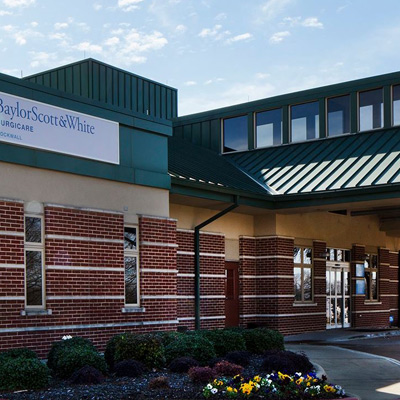
Baylor Scott & White Surgicare - Rockwall
825 W Yellowjacket Ln , Rockwall, TX, 75087
- Monday: 6:00 am - 5:00 pm
- Tuesday: 6:00 am - 5:00 pm
- Wednesday: 6:00 am - 5:00 pm
- Thursday: 6:00 am - 5:00 pm
- Friday: 6:00 am - 5:00 pm
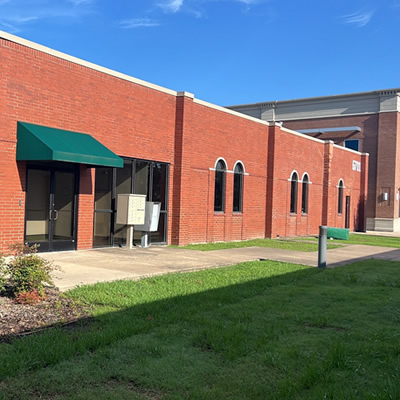
Baylor Scott & White Gastroenterology - Lake Pointe
6705 Heritage Pkwy Ste 203, Rockwall, TX, 75087
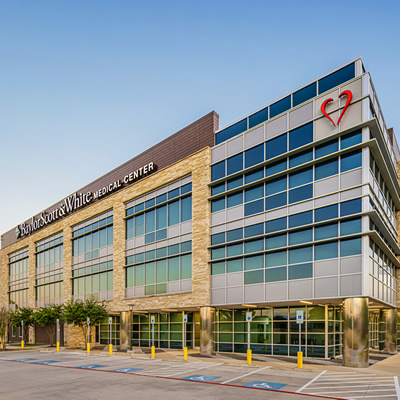
Baylor Scott & White Medical Center - Lake Pointe
6800 Scenic Dr , Rowlett, TX, 75088
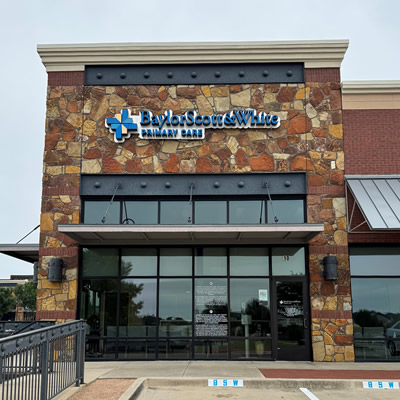
Baylor Scott & White Digestive Diseases - Prosper
111 S Preston Rd Ste 10, Prosper, TX, 75078
- Monday: 8:30 am - 4:30 pm
- Tuesday: 8:30 am - 4:30 pm
- Wednesday: 8:30 am - 4:30 pm
- Thursday: 8:30 am - 4:30 pm
- Friday: 8:30 am - 4:30 pm

Baylor Scott & White Medical Center - Frisco at PGA Parkway
7600 Better Way , Frisco, TX, 75033

Baylor Scott & White Digestive Diseases - Centennial
4461 Coit Rd Pav 2, Ste 401, Frisco, TX, 75035
- Monday: 8:30 am - 4:30 pm
- Tuesday: 8:30 am - 4:30 pm
- Wednesday: 8:30 am - 4:30 pm
- Thursday: 8:30 am - 4:30 pm
- Friday: 8:30 am - 4:30 pm
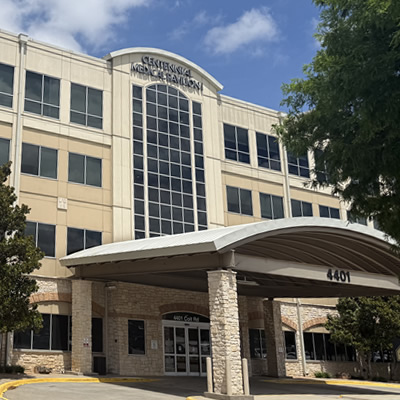
Baylor Scott & White Surgicare - Centennial
4401 Coit Rd Ste 100, Frisco, TX, 75035
- Monday: 7:00 am - 5:00 pm
- Tuesday: 7:00 am - 5:00 pm
- Wednesday: 7:00 am - 5:00 pm
- Thursday: 7:00 am - 5:00 pm
- Friday: 7:00 am - 5:00 pm

Baylor Scott & White Medical Center - Centennial
12505 Lebanon Rd , Frisco, TX, 75035

Texas Endoscopy - Independence Medical Village
8080 Independence Pkwy Ste 160, Plano, TX, 75025
- Monday: 6:00 am - 5:00 pm
- Tuesday: 6:00 am - 5:00 pm
- Wednesday: 6:00 am - 5:00 pm
- Thursday: 6:00 am - 5:00 pm
- Friday: 6:00 am - 5:00 pm

Baylor Scott & White Digestive Diseases Group - Garland
7217 Telecom Pkwy Ste 300, Garland, TX, 75044
- Monday: 8:00 am - 5:00 pm
- Tuesday: 8:00 am - 5:00 pm
- Wednesday: 8:00 am - 5:00 pm
- Thursday: 8:00 am - 5:00 pm
- Friday: 8:00 am - 5:00 pm

Baylor Scott & White North Texas Colon and Rectal Associates - North Garland
7217 Telecom Pkwy Ste 100, Garland, TX, 75044

Baylor Scott & White Surgicare - North Garland
7150 N President George Bush Hwy Ste 101, Garland, TX, 75044
- Monday: 6:00 am - 5:00 pm
- Tuesday: 6:00 am - 5:00 pm
- Wednesday: 6:00 am - 5:00 pm
- Thursday: 6:00 am - 5:00 pm
- Friday: 6:00 am - 5:00 pm

Baylor Scott & White Digestive Diseases Group at The Star
3800 Gaylord Pkwy Ste 910, Frisco, TX, 75034
- Monday: 8:00 am - 5:00 pm
- Tuesday: 8:00 am - 5:00 pm
- Wednesday: 8:00 am - 5:00 pm
- Thursday: 8:00 am - 5:00 pm
- Friday: 8:00 am - 5:00 pm

Baylor Scott & White Digestive Diseases at The Star
3800 Gaylord Pkwy Ste 910, Frisco, TX, 75034
- Monday: 8:30 am - 4:30 pm
- Tuesday: 8:30 am - 4:30 pm
- Wednesday: 8:30 am - 4:30 pm
- Thursday: 8:30 am - 4:30 pm
- Friday: 8:30 am - 4:30 pm
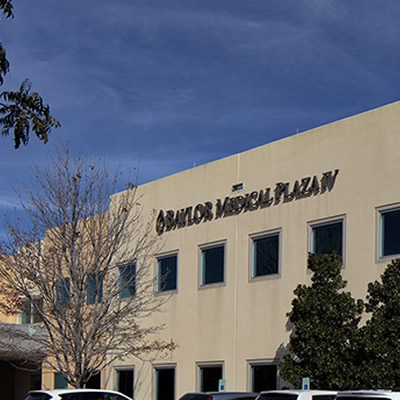
Baylor Scott & White Surgicare - Garland
530 Clara Barton Blvd Ste 100, Garland, TX, 75042
- Monday: 6:00 am - 5:00 pm
- Tuesday: 6:00 am - 5:00 pm
- Wednesday: 6:00 am - 5:00 pm
- Thursday: 6:00 am - 5:00 pm
- Friday: 6:00 am - 5:00 pm

Baylor Scott & White Medical Center - Frisco
5601 Warren Pkwy , Frisco, TX, 75034
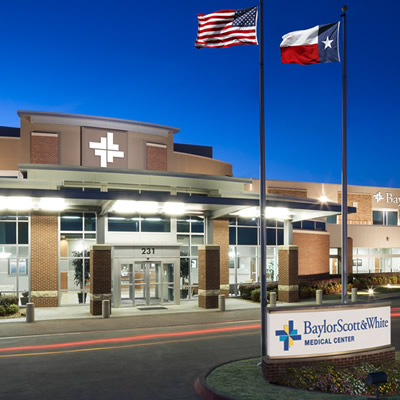
Baylor Scott & White Medical Center - Sunnyvale
231 S Collins Rd , Sunnyvale, TX, 75182
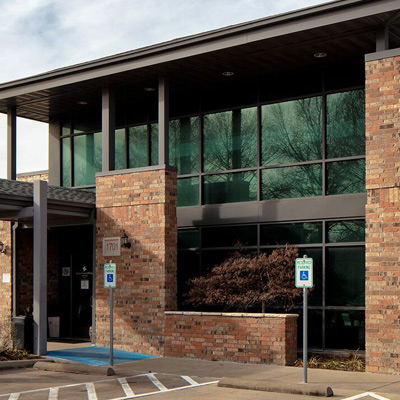
Baylor Scott & White Surgicare - Plano
1701 Ohio Dr , Plano, TX, 75093
- Monday: 6:00 am - 4:00 pm
- Tuesday: 6:00 am - 4:00 pm
- Wednesday: 6:00 am - 4:00 pm
- Thursday: 6:00 am - 4:00 pm
- Friday: 6:00 am - 4:00 pm

Baylor Scott & White Ambulatory Endoscopy Center
4708 Alliance Blvd Pavilion I, Ste 210, Plano, TX, 75093
- Monday: 7:00 am - 3:00 pm
- Tuesday: 7:00 am - 3:00 pm
- Wednesday: 7:00 am - 3:00 pm
- Thursday: 7:00 am - 3:00 pm
- Friday: 7:00 am - 3:00 pm

Baylor Scott & White Digestive Diseases Group - Plano
4708 Alliance Blvd Pavilion I, Ste 200, Plano, TX, 75093
- Monday: 8:00 am - 5:00 pm
- Tuesday: 8:00 am - 5:00 pm
- Wednesday: 8:00 am - 5:00 pm
- Thursday: 8:00 am - 5:00 pm
- Friday: 8:00 am - 5:00 pm

Baylor Scott & White Digestive Diseases and Medical Weight Loss - Plano
4716 Alliance Blvd Pavilion II, Ste 470, Plano, TX, 75093
- Monday: 8:00 am - 5:00 pm
- Tuesday: 8:00 am - 5:00 pm
- Wednesday: 8:00 am - 5:00 pm
- Thursday: 8:00 am - 5:00 pm
- Friday: 8:00 am - 5:00 pm

Baylor Scott & White Medical Center - Plano
4700 Alliance Blvd , Plano, TX, 75093

Texas Endoscopy - Parker Rd.
6405 W Parker Rd Ste 370, Plano, TX, 75093
- Monday: 6:00 am - 5:00 pm
- Tuesday: 6:00 am - 5:00 pm
- Wednesday: 6:00 am - 5:00 pm
- Thursday: 6:00 am - 5:00 pm
- Friday: 6:00 am - 5:00 pm

Baylor Scott & White Digestive Diseases Group - Park Cities
9101 N Central Expy Ste 300C, Dallas, TX, 75231

North Central Surgical Center Hospital
9301 N Central Expy Ste 100, Dallas, TX, 75231
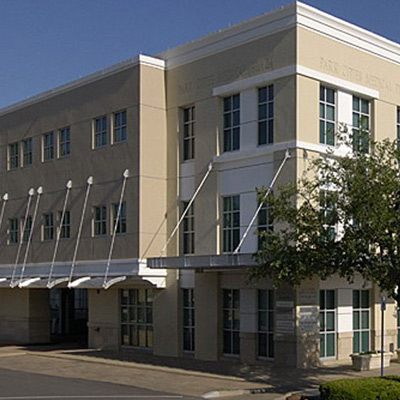
Park Cities Surgery Center
6901 Snider Plz Ste 300, Dallas, TX, 75205
- Monday: 6:00 am - 5:00 pm
- Tuesday: 6:00 am - 5:00 pm
- Wednesday: 6:00 am - 5:00 pm
- Thursday: 6:00 am - 5:00 pm
- Friday: 6:00 am - 5:00 pm

Baylor Scott & White Surgicare - Dallas
4020 Junius St , Dallas, TX, 75246
- Monday: 6:00 am - 5:00 pm
- Tuesday: 6:00 am - 5:00 pm
- Wednesday: 6:00 am - 5:00 pm
- Thursday: 6:00 am - 5:00 pm
- Friday: 6:00 am - 5:00 pm

Baylor University Medical Center, part of Baylor Scott & White Health
3500 Gaston Ave , Dallas, TX, 75246

Baylor Scott & White Center for Esophageal Diseases - Sammons Center (Prearranged Appointment)
3410 Worth St Ste 235, Dallas, TX, 75246

Baylor Scott & White Center for Inflammatory Bowel Diseases
3409 Worth St Ste 600, Dallas, TX, 75246
- Monday: 8:30 am - 4:30 pm
- Tuesday: 8:30 am - 4:30 pm
- Wednesday: 8:30 am - 4:30 pm
- Thursday: 8:30 am - 4:30 pm
- Friday: 8:30 am - 4:30 pm

Baylor Scott & White North Texas Colon and Rectal Associates - Dallas
3409 Worth St Ste 600, Dallas, TX, 75246
- Monday: 8:30 am - 5:00 pm
- Tuesday: 8:30 am - 5:00 pm
- Wednesday: 8:30 am - 5:00 pm
- Thursday: 8:30 am - 5:00 pm
- Friday: 8:30 am - 5:00 pm
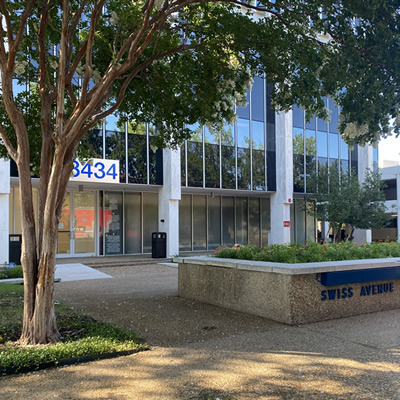
Baylor Scott & White Advanced Digestive Care
3434 Swiss Ave Ste 200, Dallas, TX, 75204
- Monday: 8:00 am - 5:00 pm
- Tuesday: 8:00 am - 5:00 pm
- Wednesday: 8:00 am - 5:00 pm
- Thursday: 8:00 am - 5:00 pm
- Friday: 8:00 am - 5:00 pm
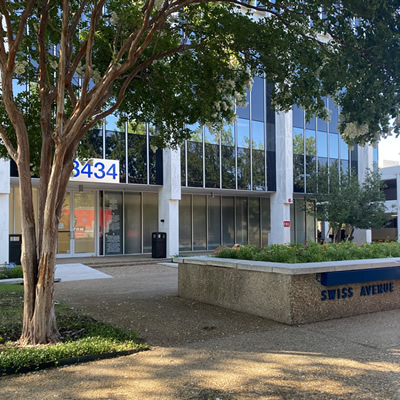
Baylor Scott & White Center for Esophageal Diseases
3434 Swiss Ave Ste 200, Dallas, TX, 75204
- Monday: 9:00 am - 5:00 pm
- Tuesday: 9:00 am - 5:00 pm
- Wednesday: 9:00 am - 5:00 pm
- Thursday: 9:00 am - 5:00 pm
- Friday: 9:00 am - 1:00 pm

Tuscan Surgery Center at Las Colinas
701 Tuscan Dr Ste 100, Irving, TX, 75039
- Monday: 6:00 am - 5:00 pm
- Tuesday: 6:00 am - 5:00 pm
- Wednesday: 6:00 am - 5:00 pm
- Thursday: 6:00 am - 5:00 pm
- Friday: 6:00 am - 5:00 pm

Lonestar Endoscopy Center - Flower Mound
1001 Surrey Ln , Flower Mound, TX, 75022
- Monday: 5:00 am - 3:00 pm
- Tuesday: 5:00 am - 3:00 pm
- Wednesday: 5:00 am - 3:00 pm
- Thursday: 5:00 am - 3:00 pm
- Friday: 5:00 am - 3:00 pm

Baylor Scott & White Medical Center - Irving
1901 N MacArthur Blvd , Irving, TX, 75061

Baylor Scott & White Medical Center - Grapevine
1650 W College St , Grapevine, TX, 76051

Lonestar Endoscopy Center - Southlake
515 S Nolen Dr , Southlake, TX, 76092
- Monday: 5:00 am - 3:00 pm
- Tuesday: 5:00 am - 3:00 pm
- Wednesday: 5:00 am - 3:00 pm
- Thursday: 5:00 am - 3:00 pm
- Friday: 5:00 am - 3:00 pm
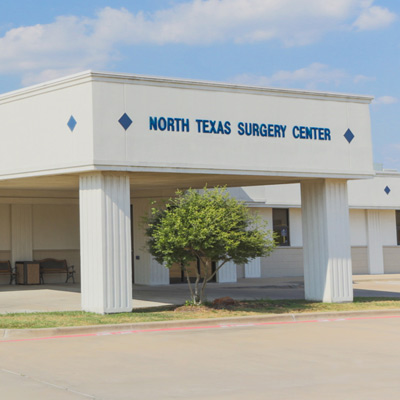
North Texas Surgery Center
7992 W Virginia Dr , Dallas, TX, 75237
- Monday: 6:00 am - 5:00 pm
- Tuesday: 6:00 am - 5:00 pm
- Wednesday: 6:00 am - 5:00 pm
- Thursday: 6:00 am - 5:00 pm
- Friday: 6:00 am - 5:00 pm
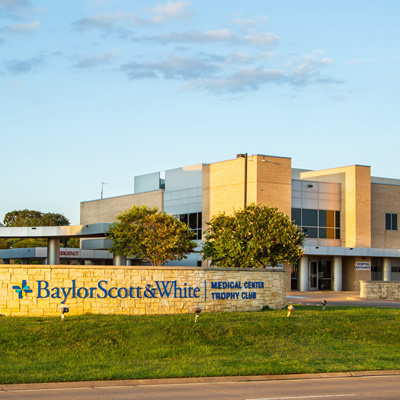
Baylor Scott & White Medical Center - Trophy Club
2850 E State Highway 114 , Trophy Club, TX, 76262

Lonestar Endoscopy Center - Keller
180 Bear Creek Pkwy , Keller, TX, 76248
- Monday: 5:00 am - 3:00 pm
- Tuesday: 5:00 am - 3:00 pm
- Wednesday: 5:00 am - 3:00 pm
- Thursday: 5:00 am - 3:00 pm
- Friday: 5:00 am - 3:00 pm

Baylor Scott & White Medical Center - Waxahachie
2400 N Interstate 35E , Waxahachie, TX, 75165
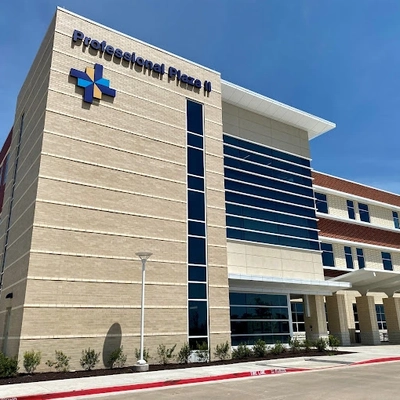
Baylor Scott & White Digestive Diseases - Waxahachie
2360 N Interstate 35E Ste 310 , Waxahachie, TX, 75165
- Monday: 8:00 am - 4:30 pm
- Tuesday: 8:00 am - 4:30 pm
- Wednesday: 8:00 am - 4:30 pm
- Thursday: 8:00 am - 4:30 pm
- Friday: 8:00 am - 4:30 pm
Frequently asked questions
-
Does gastroparesis go away on its own?
Usually, gastroparesis doesn’t go away on its own and isn’t curable. Rarely, though, the condition may resolve if it’s due to a temporary cause, such as a short-term infection.
-
What are the worst foods for gastroparesis?
For people with gastroparesis, foods that are high in fat, fiber, or sugar, as well as large meals, tend to be the most problematic. These can slow digestion and trigger symptoms such as nausea, bloating and vomiting. Other foods to avoid include fried foods, fatty meats, raw vegetables, whole grains, nuts, seeds, certain fruits, carbonated beverages, alcohol and spicy dishes.
-
What does gastroparesis feel like?
Gastroparesis feels different for each person. You may feel full soon after eating, or you may feel pain in your abdomen. You may also have nausea, vomiting, bloating or acid reflux.
-
Can gastroparesis cause weight gain?
In certain cases, gastroparesis may lead to weight gain as a result of slower stomach emptying, changes in appetite, dietary adjustments and decreased physical activity. Still, weight gain doesn’t affect everyone with the condition, so it’s important to work with a healthcare provider for guidance tailored to your needs.
-
What’s the life expectancy for someone with gastroparesis?
People with gastroparesis have a normal life expectancy. This condition isn’t usually life-threatening, although it can cause serious complications without proper management.
-
Is gastroparesis hereditary?
Although gastroparesis is not usually inherited, genetics can play a role in a person’s likelihood of developing the condition. For instance, people with a predisposition to diabetes may face a higher risk.
